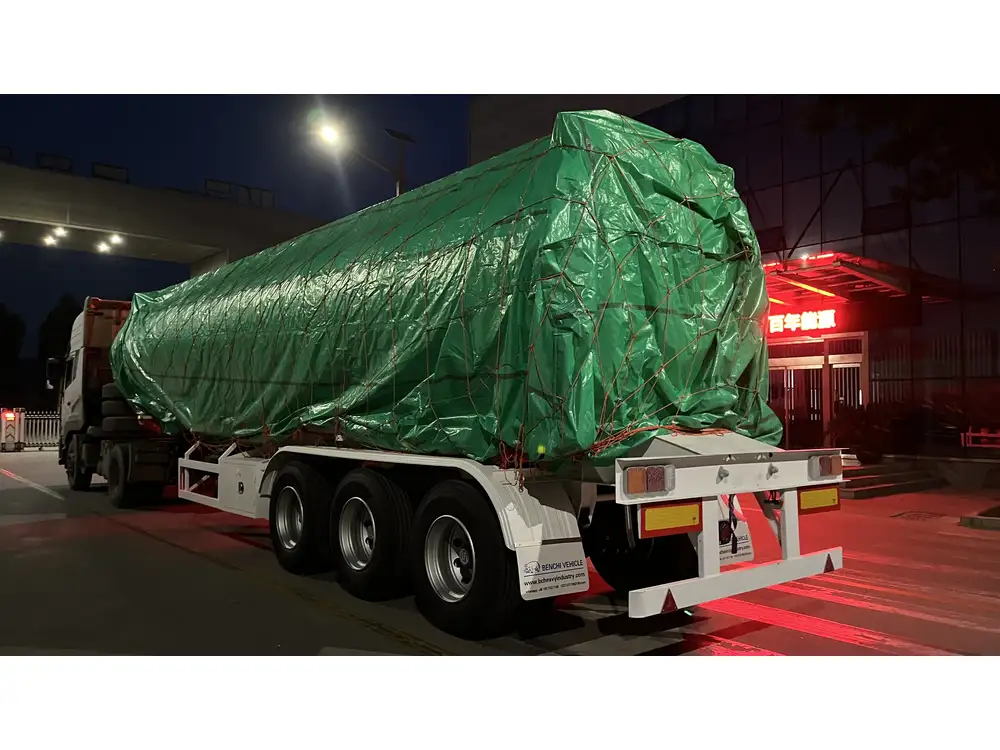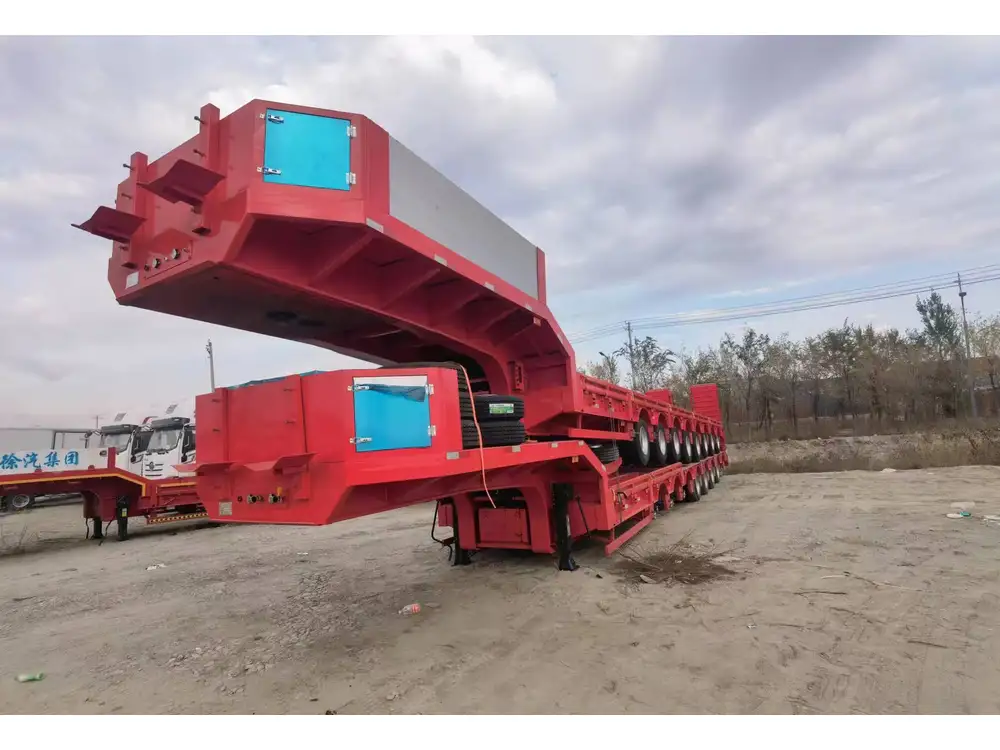Introduction
When investing in a MAC dump trailer, potential buyers often ponder a critical question: How long do MAC dump trailers last? The longevity of these essential machinery components isn’t merely a function of their materials and design; it encompasses various factors like usage, maintenance, environmental exposure, and much more. In this article, we will dissect the aspects that contribute to the lifespan of MAC dump trailers and provide a detailed exploration for anyone seeking to maximize their investment.
Factors Influencing Longevity

Material Quality and Construction
One of the primary considerations affecting the lifetime of MAC dump trailers is the quality of materials used in construction. MAC trailers are renowned for their robust manufacturing process, often utilizing high-strength steel and aluminum alloys. The choice of materials plays a pivotal role in resisting wear and tear, thereby prolonging the trailer’s life.
High-Strength Steel
- Durability: Mac dump trailers constructed with high-strength steel are resistant to deformation and withstand significant loads without compromising structural integrity.
- Corrosion Resistance: Steel is often treated with anti-corrosion measures, extending longevity in harsh environments.
Aluminum Options
- Weight Benefits: Aluminum alternatives minimize weight, enhancing fuel efficiency and load-carrying capability.
- Resistance to Corrosion: Naturally resistant to rust, aluminum doesn’t require extensive maintenance to prevent decay.
Usage Patterns
The duration a MAC dump trailer endures can dramatically fluctuate depending on usage patterns. Understanding how these trailers are utilized can provide keen insights into their lifespan.
- Regular Heavy-Duty Usage vs. Occasional Light Use: Trailers used daily in challenging conditions (like construction sites) may exhibit wear sooner than those utilized sporadically.
- Loading Practices: Overloading a trailer can create undue stress, leading to faster degradation. Adhering to manufacturer specifications is crucial for longevity.
Maintenance Practices
Just as a vehicle requires regular servicing, MAC dump trailers thrive under proper maintenance regimes. Regular inspections, cleaning, and repairs play a vital role in prolonging life expectancy.
| Maintenance Activity | Frequency | Benefits |
|---|---|---|
| Visual Inspections | Bi-Weekly | Early detection of wear or damage |
| Lubrication | Every 1000 miles | Reduced friction in moving parts |
| Cleaning | After each use | Removes corrosive materials |
| Tire Check | Monthly | Ensures proper inflation and tread life |

Environmental Conditions
Environmental factors significantly impact the longevity of MAC dump trailers. Different climates and operating environments impose distinctive challenges.
- Wet and Humid Climates: Increased moisture exposure can accelerate rust damage, particularly to non-treated metallic components.
- Dusty or Sandy Environments: Abrasive conditions may lead to premature wear of moving parts, necessitating more frequent maintenance checks.
Average Lifespan of MAC Dump Trailers
On average, MAC dump trailers can last anywhere from 10 to 15 years, depending on the outlined factors. Here’s a breakdown of factors that further influence this lifespan:
| Factor | Estimated Impact on Lifespan |
|---|---|
| Material Composition | +5 years |
| Regular Maintenance | +5 years |
| Usage (Heavy vs. Light) | -3 to -5 years |
| Environmental Factors | -2 to -4 years |
Signs That Your MAC Dump Trailer Needs Attention
Understanding when to act is crucial to securing the long-term functionality of your MAC dump trailer. A few telltale signs may indicate that it’s time to perform maintenance or repair:
Visible Rust or Corrosion
- Inspecting for rust spots is essential, especially in environments prone to moisture.
Unusual Noises from the Trailer
- Listen for grinding or squeaking sounds that could indicate mechanical issues needing immediate attention.
Uneven Tire Wear
- Tire misalignment may suggest structural concerns, potentially impacting safety and stability.
Difficulty in Lifting/Lowering Mechanism
- Hydraulic issues manifesting as difficulty in operating the dump feature can indicate an underlying problem.

Maintenance Best Practices for Enhancing Longevity
To ensure that your MAC dump trailer persists for years to come, implementing some best practices is paramount:
Routine Inspections
Establish a consistent routine for inspection, focusing on critical components like:
- Frame and Structure: Check for cracks or misalignments.
- Suspension System: Look for wear on springs and shock absorbers.
- Hydraulic System: Ensure smooth operation and check for leaks.
Keep It Clean
Cleaning is an often-overlooked aspect of maintenance. Ensure the trailer is washed after each use, particularly in environments laden with chemicals or corrosive materials.

Protect Against Rust
Applying protective coatings, particularly in rust-prone areas, can extend the life of the metal components. Many trailers benefit from a galvanized finish, which offers an added layer of defense against the elements.
Load Management
Adhering strictly to the trailer’s load specifications can mitigate the risks associated with wear and tear. Overloading puts excessive stress on axles and may even compromise the structural integrity of the chassis.
Conclusion
In summary, understanding the question of how long MAC dump trailers last is multifaceted, deeply interconnected with material quality, usage patterns, maintenance diligence, and environmental exposure. By focusing on these elemental factors and implementing a robust maintenance routine, buyers can significantly enhance the overall lifespan of their trailers.
When committed to proper care and mindful operation, MAC dump trailers can serve reliably for a decade or more. This longevity not only safeguards your investment but also underscores the value of quality craftsmanship that MAC offers within the realm of heavy transport solutions.
Investing in a MAC dump trailer represents a commitment to quality and durability—ensuring that you get the most out of your machinery for years to come.



